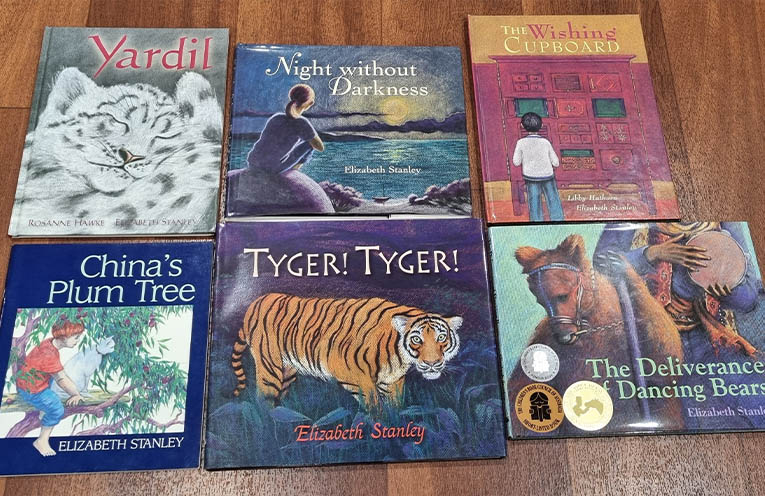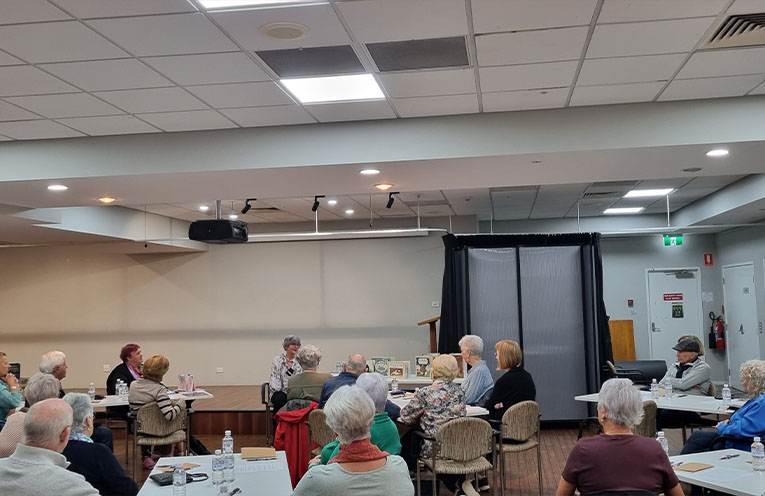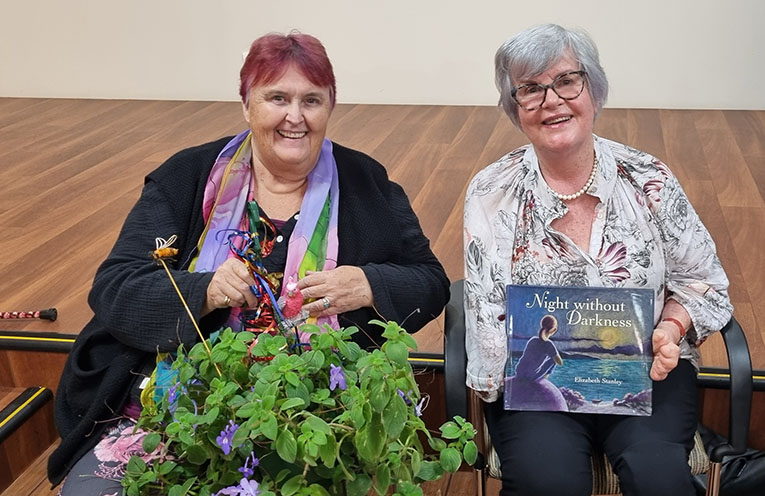AWARD-WINNING children’s writer, artist and illustrator Libby Stanley, held a special Myall University of the Third Age (MU3A) workshop at Tea Gardens Grange on Thursday 15 May.
The author of seven books and two memoirs, Libby has been active for over three decades.
Her personal story includes losing most of her limbs to meningococcal disease almost a decade ago.
She remains independent and will soon receive special prostheses to continue her much-loved work.
Libby, whose background includes being an English teacher and educational psychologist for 15 years, was invited by local musician and writer Lee Clayton after he saw her present on a cruise.
She explored questions such as the nature of “picture-books” vs illustrated stories, and how the former delivers meaningful narratives and ideas to targeted aged groups.
“A picture-book has between 100-1000 words total, simple language, the sentences are not too long, and almost all are 32 pages, which allows me to storyboard the ever-important plot before I get started,” Libby explained.
“The story comes first, and the plot requires something to change – be it the character or the context.
“And picture-book endings need to be happy.”
Libby has often been inspired by real news items.
“The Deliverance of Dancing Bears’, which was shortlisted by the Children’s Council, was the result of seeing terrible images on the news.
She also touched on the concept of “visual literacy”, which is understanding what a picture actually tells you.
“The illustrator designs the elements including scale, position, direction of animals’ faces,” she said.
“The orientation of the book is directly relevant… portrait is for people, landscape is for wide open spaces, square has its own focus and uses.
“Illustrations should stimulate discussion between child and parent, or teacher and students” Libby said.
While Libby has used artificial intelligence (AI) for some recent illustrations due to her physical situation, she agreed that AI is oddly limited, even perplexing, and can be rather inconsistent.
Publishers, who are picture-book shy, do not take AI too well, either.
During the two hours of stimulating discussion, the Writer and Art group members of MU3A also contributed their own experiences.
By Thomas O’KEEFE
You can help your local paper.
Make a small once-off, or (if you can) a regular donation.
We are an independent family owned business and our newspapers are free to collect and our news stories are free online.
Help support us into the future.





